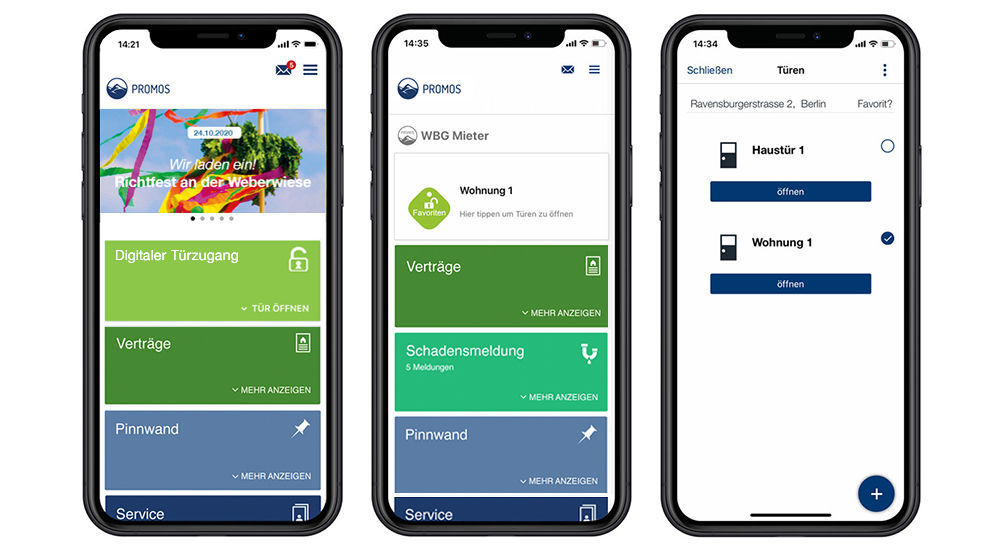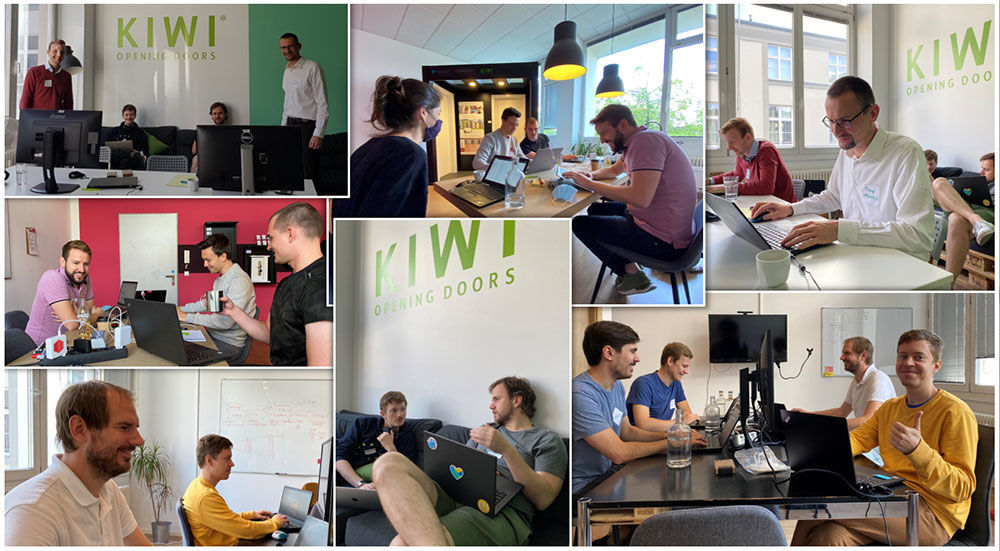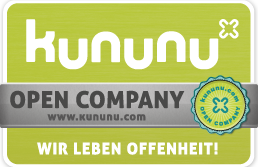The first KIWI Platform Hackathon – results that are worth seeing
Make two things one – the idea of the first KIWI Platform Hackathon
In addition to the team of experts from PROMOS consult, employees from Datatrain and Wohnungshelden also worked intensely on specific use cases to design even more integrative solutions for the real estate sector. The goal: make stand-alone solutions a thing of the past. Users should have the ability to control various systems through a single application without have to enter the same data multiple times in different places. For PROMOS, the concrete goal was to enable integration of the KIWI.KI digital door locking system into the easysquare tenant app without requiring users to verify themselves multiple times though different service providers. And the result? Precisely that and a bit more.
Open sesame – results at a glance
To summarise: across two intense days of work, the development team led by software architect René Libbert and software developer Tobias Koops created an interface to the KIWI.KI servers that makes it technically possible to open the company’s digital door systems. This was implemented for two scenarios:
- A tenant activates their account in the tenant app and automatically receives a digital key for their apartment door without having to register with KIWI.KI.
- A potential tenant responds to an ad, then simultaneously receives a viewing appointment and a digital key to enter the relevant viewing object.
To assign easysquare app users to the relevant rental unit and thus to a specific door, a door ID for a rental unit can be stored in the connected SAP® system. In this way, it is possible for both confirmed and potential tenants to open the corresponding KIWI.KI doors using the tenant app or the potential tenant app, respectively.
The team has even already ensured the intuitive operation typical of easysquare. There is now a special “digital door access” service that can be integrated into the easysquare app. Here, users see a list of all the doors to which they currently have a digital key. Doors can be opened with a click or marked as favourites. Once at least one door has been marked as a favourite, a specially programmed widget also appears in the upper area of the easysquare tenant app. Clicking on this will open an overview of all the user’s favourite doors.

A widget in the upper area of the easysquare tenant app (screen 2) provides quick access to all favourited KIWI doors. The relevant KIWI door can be opened or marked as a favourite with one click (screen 3).
There’s potential here – looking ahead
These highly concrete developments may be fully functional, but this is still only a draft solution for now. Further optimisations will be necessary before it is actually put into use. Nevertheless, both the jury and the audience at the first KIWI Platform Hackathon were quite impressed by the solution created during the event. In the future, the new interface could also be used to search the KIWI.KI database and find existing KIWI doors at certain addresses, for instance. This address matching could be helpful when initially maintaining the door ID in the customer’s SAP® system.
Furthermore, eventual integration of this new functionality is also planned for the easysquare professional app. This will provide numerous participants in the real estate sector easy access to building and apartment doors, such as for safety precautions during drinking water or smoke detector inspections. Tenants could also optionally grant door access to craftsmen who are connected through the craftsmen portal HWK even when tenants are absent. Overall, integration of the digital KIWI locking system into the easysquare app is a promising scenario with great potential.
We are excited for the next developments and would like to once again express our gratitude to KIWI.KI for the invitation to this inspiring event.
Interested in our solution approach? Feel free to get in touch with us! We can’t wait to hear your ideas for getting the product ready for the market.

Product and software developers worked intensely in small groups at the KIWI.KI Hackathon.

